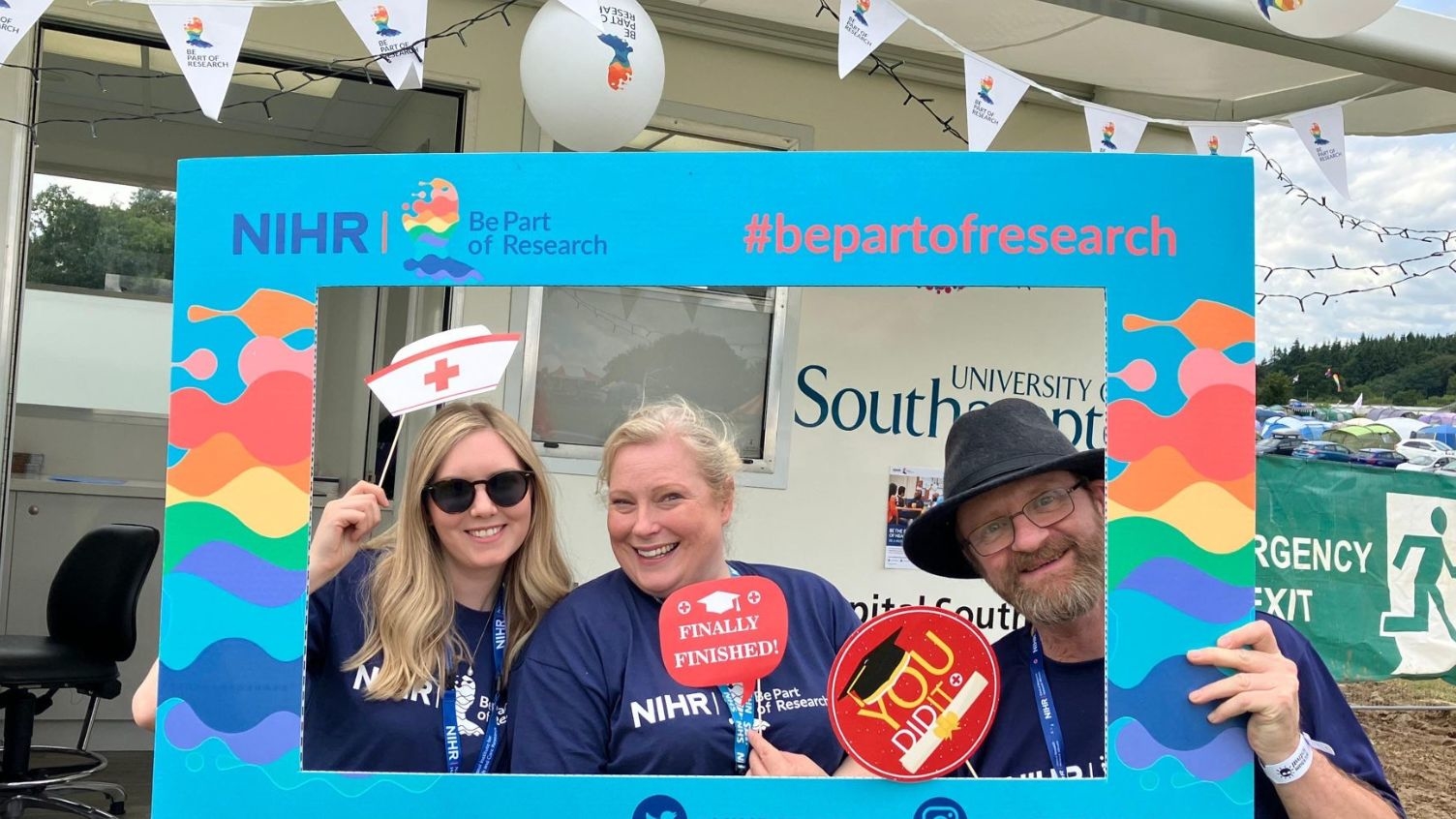Your Path in Research - Maria Croft
- 10 January 2023
- 4 min read
Maria Croft is a Clinical Research Practitioner in the CRN Kent, Surrey and Sussex Research Delivery Team.
As part of our Your Path in Research series, we spoke with CRN KSS Clinical Research Practitioner Maria Croft, about falling in love with research, and how the pandemic demonstrated its importance.
When did you first get involved in research?
At the beginning of my hospital healthcare career in 2013, I was working as a healthcare assistant while I was studying for my degree. While I was there, I took an interest in the research that was happening, and I was fortunate enough to be offered a research assistant role in 2015.
My first research trial was a surgical study comparing the effectiveness of two types of stitches of large colorectal operations in reducing the likelihood of a hernia following surgery. I instantly fell in love with the idea that we don't know the answer, and that finding the answer was going to make a direct difference to patients' treatments and their recovery.
Why did you decide to get involved?
While working as a healthcare assistant, I met a nurse in the research department, and I was really interested in the work she was doing. Every time I saw her, I'd ask all kinds of questions about the research as I was keen to learn more. Taking so much interest really did pay off, because as the Trust's research team expanded they were looking for a new research assistant. I was encouraged to apply because they already knew that I was committed and passionate about research and I was fortunate to get the role. After a couple of years, I was promoted to a Clinical Researcher within the Surgery and Oncology division.
What has been the highlight of your research career so far?
Certainly the most important and formative experience of my career was the COVID-19 pandemic. I was the COVID-19 research delivery lead in the intensive care unit, which was incredibly challenging but a real privilege to be part of research at a time of rapid change in the world. Obviously our patients were in great need of help as there were not any known treatments for the virus, and that really spurred me to continue the fight everyday. There was a huge demand from the patients, wanting to take part in research to receive the drugs. It was heartbreaking when I recruited a patient who was then randomised onto the control arm. But that's part of research, no-one knew if these drugs would help and that taught me that without research, patients would not be getting the treatments they are today. One of the hardest parts of the pandemic was looking after our own colleagues and friends who were unwell with COVID-19. Although it was distressing, it brought all the departments closer - we were a family.
On the other hand, to see the positive results of a trial that you've been working on to help such unwell patients, make a difference to their treatment is incredible. Dexamethasone became the first treatment for COVID-19, followed by tocilizumab and it was so emotionally rewarding to see patients being given the research treatments as standard care for the first time. Running and delivering trials on such unwell patients was, of course, very stressful. There were many emotional highs and lows as you can imagine, but I could not have gotten through it without the support of my colleagues. For me, being part of this change has been the biggest highlight of my career so far.
Why do you believe research is important?
Many people point to the fact that research is vital for the future of medicine which is certainly true. But my experience during the pandemic also showed me that research can have an almost instant impact. The pandemic gave research a sense of urgency, and that feeling has somehow stayed with me and my love for delivering research.
Now I'm a Clinical Research Practitioner in the CRN KSS Research Delivery Team, I'm involved in driving research into the community. We are helping research naive organisations such as GP surgeries, schools and care homes to get involved in research. While that is a long way from my previous role, I have maintained a strong sense of how important it is to involve everyone in research, and the ways that research has an impact on everyone's lives.
Would you recommend research as a career to others?
I certainly would. Especially for people with patient experience looking for a new challenge. Personally, I think having direct patient experience is highly valuable when moving into a research delivery career. For me, patients are the whole point of being in healthcare. You can learn how to conduct research, but understanding patients and being able to communicate with them effectively only comes through experience. Being part of research that changes practice for these patients is the most rewarding feeling.
What are your plans and ambitions for the future?
One of the most exciting things about being part of the CRN KSS Research Delivery Team is that it is growing and research is slowly becoming a part of standard care. As time goes on, I hope that everyone will be given the opportunity to take part and I intend to continue to play my part in developing the CRN's community-based research programme. Health and care research in the community is a large area, and I very much intend to grow and develop my career with it.


